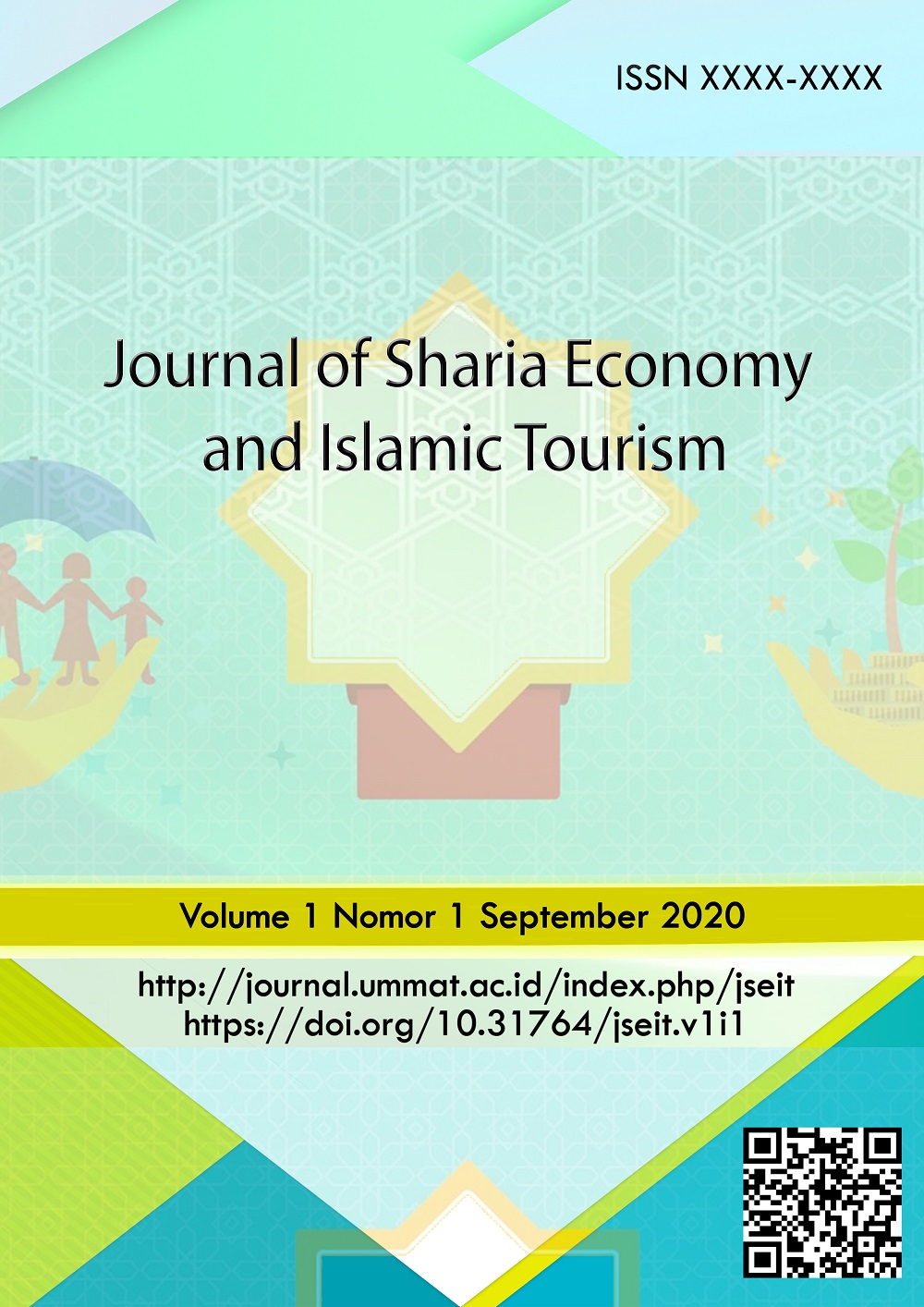The Paddy Land Pawn System in The Village of Kale'o, Lambu Sub-District, Bima District in an Islamic Perspective
DOI:
https://doi.org/10.31764/jseit.v1i1.3850Abstract
Abstract: This research is an attempt to examine the paddy field pawning system that has been carried out by the people of Kale'o Village, Lambu District, Bima Regency since a long time ago from an Islamic perspective. The research method used in this research is descriptive method that describes qualitative data. This study uses primary data and secondary data. Primary data sources were taken from the interview process with informants, namely pawners (rahin), pawn recipients (murtahin), and community leaders. The secondary data is obtained from journals and books that discuss pawning. Data collection methods in this study through observation, interviews and documentation. The conclusion of this research is that the paddy field pawning system in Kale'o Village, Lambu District, Bima Regency as a whole, both in terms of its qabul (sighat akad), aqid (rahin and murtahin), pawning goods (marhun) and debt (marhun bih) has been valid from an Islamic perspective. The full use of paddy land (marhun) pawning goods by the pawn recipient is not justified and is not valid according to Islamic law, because it is not in accordance with the values of justice and there is an element of usury.
Â
Abstrak: Penelitian ini merupakan usaha untuk meneliti sistem gadai tanah sawah yang telah dilakukan oleh masyarakat Desa Kale’o Kecamatan Lambu Kabupaten Bima sejak dulu dalam perspektif Islam. Metode penelitian yang digunakan dalam penelitian ini adalah metode diskriptif yang memaparkan data kualitatif. Penelitian ini menggunakan data primer dan data sekunder. Sumber data primer diambil dari proses wawancara dengan informan, yaitu penggadai (rahin), penerima gadai (murtahin), dan tokoh masyarakat. Adapun data sekunder diperoleh dari jurnal dan buku-buku yang membahas tentang gadai. Metode pengumpulan data dalam penelitian ini melalui observasi, wawancara dan dokumentasi. Kesimpulan dari penelitian ini, bahwa sistem gadai tanah sawah di Desa Kale’o Kecamatan Lambu Kabupaten Bima secara keseluruhan, baik dari segi ijab qabulnya (sighat akad), aqid (rahin dan murtahin), barang gadai (marhun) dan hutang (marhun bih) telah sah dalam perspektif Islam. Adapun pemanfaatan barang gadai tanah sawah (marhun) secara penuh oleh penerima gadai tidak dibenarkan dan tidak sah menurut syariat Islam, karena tidak sesuai dengan nilai-nilai keadilan dan terdapat unsur riba.
References
Amir, R. (2015). Gadai Tanah Perspektif Ekonomi Islam. Muamalah,Gadai Perspektif Ekonomi Islam Yang, V(1), 81–90.
An Aqimuddin, E. (2016). Islam Sebagai Sumber Hukum Internasional. Masalah-Masalah Hukum, 45(4), 318. https://doi.org/10.14710/mmh.45.4.2016.318-325
Damsyik, D. (2013). Reinterpretasi Sumber Hukum Islam. Al-’Adalah, XI(17), 224.
Edi Gunawan. (2015). Pembaruan Hukum Islam dalam Kompilasi Hukum Islam. Hunafa: Jurnal Studia Islamika, 12(2), 281–305.
Isini, A., & Karamoy, H. (2017). Evaluasi Penerapan Akuntansi Gadai Syariah (Rahn) Pada PT. Pegadaian (Persero) Cabang Manado. Jurnal Riset Ekonomi, Manajemen, Bisnis Dan Akuntansi, 5(2), 235–244.
Jafar, W. A. (2018). Persepsi Masyarakat Kota Bengkulu Terhadap Paham Islam Moderat. Islam Transformatif : Journal of Islamic Studies, 2(1), 71. https://doi.org/10.30983/it.v2i1.653
Jajuli, M. S. (2015). Kepastian Hukum Gadai Tanah Dalam Hukum Islam. Ahkam, XV(2), 221–230.
Maulidizen, A. (2016). Aplikasi Gadai Emas Syari’ah: Studi Kasus Pada BRI Syari’ah Cabang Pekanbaru. FALAH: Jurnal Ekonomi Syariah, 1(1), 76. https://doi.org/10.22219/jes.v1i1.2698
Sulidar. (2013). Urgensi Kedudukan Hadis Terhadap Alquran Dan Kehujjahannya Dalam Ajaran Islam. Analytica Islamica, Vol. 2, No, 335–336.
Supriatna, E. (2019). Islam dan Kebudayaan. Jurnal Soshum Insentif, 282–287. https://doi.org/10.36787/jsi.v2i2.178
Downloads
Published
Issue
Section
License
Authors who publish articles in Journal of Sharia Economy and Islamic Tourism agree to the following terms:
- Authors retain copyright of the article and grant the journal right of first publication with the work simultaneously licensed under a CC-BY-SA or The Creative Commons Attribution–ShareAlike License.
- Authors are able to enter into separate, additional contractual arrangements for the non-exclusive distribution of the journal's published version of the work (e.g., post it to an institutional repository or publish it in a book), with an acknowledgment of its initial publication in this journal.
- Authors are permitted and encouraged to post their work online (e.g., in institutional repositories or on their website) prior to and during the submission process, as it can lead to productive exchanges, as well as earlier and greater citation of published work (See The Effect of Open Access).

